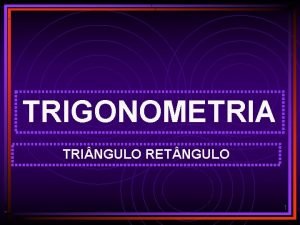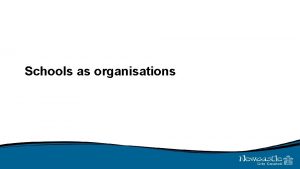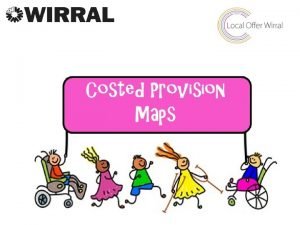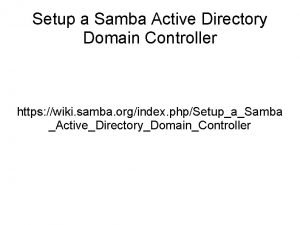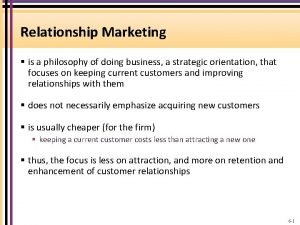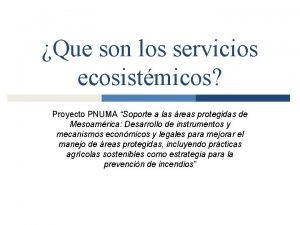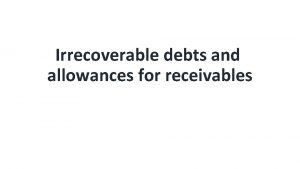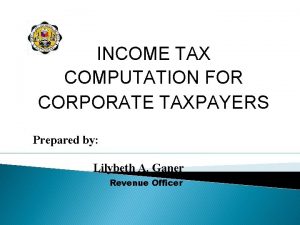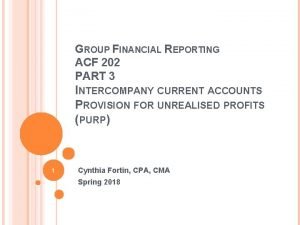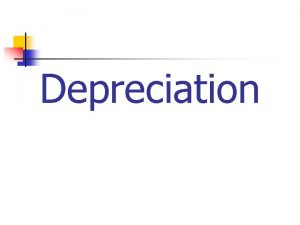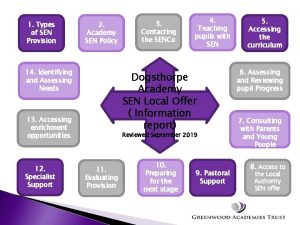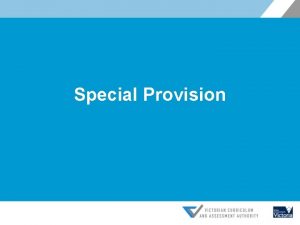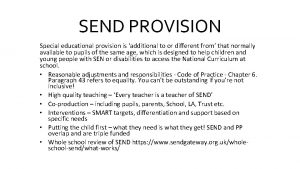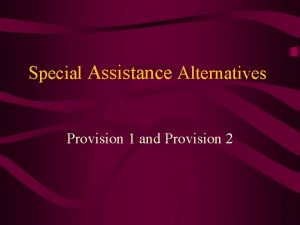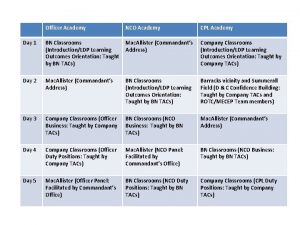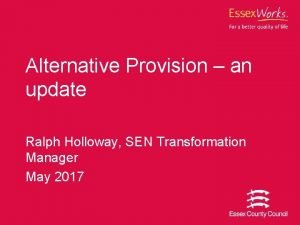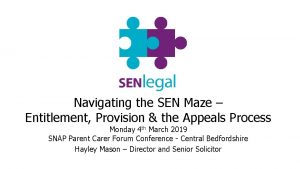1 Types of SEN Provision 2 Academy SEN




















- Slides: 20

1. Types of SEN Provision 2. Academy SEN Policy 14. Identifying and Assessing Needs 4. Teaching pupils with SEN Dogsthorpe Academy SEN Local Offer ( Information report) 13. Accessing enrichment opportunities 12. Specialist Support 3. Contacting the SENCo Reviewed September 2018 11. Evaluating Provision 10. Preparing for the next stage 9. Pastoral Support 5. Accessing the curriculum 6. Assessing and Reviewing pupil Progress 7. Consulting with Parents and Young People 8. Access to the Local Authority SEN offer

1. Types of SEN we provide for: Communication and Interaction • Autism Spectrum Conditions (inc. Asperger’s Syndrome) • Speech and Language Difficulties • Cognition and Learning • Dyslexia • Dyscalculia • Dyspraxia Moderate Learning Difficulties Social, Emotional and Mental Difficulties • ADHD • Attachment disorder • Mental Illness-Depression • Self harm Sensory and/or physical needs • Vision/ hearing impairment • Motor skill difficulties

1. Types of SEN provision needs a range of outside specialist support. Targeted – Child needs resources and support from one or more outside agencies Universal Targeted – Needs are not being met through QFT Targeted Specialist – Child Universal – has an identified additional need but is progressing well Child has multi agency involvement Child will be working towards, or will already have, a EHC plan. Inclusion Manager to seek advice where necessary from outside specialists. Training for adults involved in the care of the child to be regular. Specialist assessments are used to recognise steps in learning. Monitoring of the support given to the child through range of means and by a range of specialists. Parents are contacted frequently and kept up to date on the day to day progress of the child through a key adult. ‘Cycle of Support’ in place and reviewed regularly Advice sought by Inclusion Leader to outside agencies. Child will be working towards , or already have, a Co ordinated plan in place. Additional Training may be needed to support the child in school. Additional arrangements and time will be needed in order for the child to receive specialist support. Monitoring by Inclusion Manger and other outside specialists. Complete CAF and start TAC First point concern form received by Inclusion Manager ‘Cycle of support’ put in place using resources from within school. Advice sought from Inclusion Manager and members of SLT Progress monitored through analysis of extra and additional support that has been given Monitoring by Inclusion manager through individual observations of the child Half termly ‘Structured Conversations’ with parents to discuss progress of child and next steps- Class Teacher and Inclusion Manager to attend. Use of additional assessments , where needed. Needs met through quality first teaching Advice sought through Phase Leader and other teachers Progress monitored through Pupil Progress Meetings and data captures Monitoring by inclusion Manager through Learning Walks/ Book Scrunities/ Pupil Interviews Parents evenings used by Class Teacher as a time to share what is working well and next steps for the child Training for students and NQTs. Access to training as appropriate. Whole school policies and procedures in place.

2. The academy SEN policy can be found : LINK HERE TO POLICY

3. Contacting the SENCO. SENCo – Mrs Laura Hawkey Tel 01733 343581 Lhawkey@dogsthorpeacademy. org I can : • Offer advice about how to identify if your child has any special educational • needs. • Suggest ways to support your child at home • Make referrals to outside agencies • Lead multi-agency meetings to make sure your child’s needs are met in school • Provide advice on any family needs and suggest who can help • Should you wish to speak or meet with her then please ring the school office or speak with a member of our office staff to make an appointment. Or the Advisory Council Member responsible for SEN at Greenwood Dale Academy: charlotte. krzanicki@greenwoodacademies. org

3. Contacting the SENCO, if you have a Concern. Firstly, raise any concerns with your child’s class teacher. Senior Managers and the Inclusion Manager will always be happy to talk to you either face to face, by phone, or by email. If you are still not happy, please feel free to contact the Head Teacher to discuss your concerns.

4. Teaching pupils with SEN All pupils with SEN are taught a full range of subjects by teachers with training and experience of adapting lessons to make them accessible but appropriately challenging for all pupils. Pupils have access to all aspects of the curriculum unless otherwise stated in a published EHC plan. The quality of every teachers’ provision for pupils with SEN is observed, monitored and challenged as part of the academy’s quality assurance processes and the teachers’ annual performance management arrangements. Our aim is to encourage and prepare all pupils to become independent learners. The academy provides regular training throughout the year to support teachers in addressing specific SEN ensuring that pupils receive ‘quality first teaching’. Some classes provide additional support in the classroom to help pupils access the lessons. Special Access Arrangements may be put in place for examinations. Targeted pupils may access additional learning opportunities to help them catch up.

4. Teaching pupils with SEN - Differentiation We always aim have an engaging and fun curriculum that all children can access, whatever their needs. Our teachers have a duty to plan and deliver lessons based on knowing their children well and by adapting lessons quickly so that all children can receive the best outcomes. We use a wide range of multi sensory Children will receive adult support resources and visual stimuli to where necessary to ensure they can ensure our children can access their access the curriculum. learning in class. Children can be provided with a range of access strategies for example: work in chunks, extra processing time and work breaks, this will help to ensure they are able to access the curriculum.

5. Accessing the Curriculum We will provide the following to support children in their learning: Adult support where appropriate A range of access strategies such as work in chunks, work breaks, extra processing time Flexible groupings A wide range of visual and multi sensory resources Appropriate teaching approach for a child’s needs eg. hands on, visual, multi sensory Access to ICT devices eg. i. Pad, notebook, laptop, voice recorder Specialist equipment eg sloping boards, pencil grips, calming/fiddle toys, seating cushions, coloured overlays Individual timetables/schedules

• 6. Assessing and reviewing pupil progress. Teacher assessments Annual reviews and structured parent conversations Additional intervention reports Academy data collection We will ensure that there are regular chances to assess and review children’s progress and we will use the following means : Written reports Comparison with national data Review meetings

7. Consulting with parents and young people. • We will ensure that we discuss any additional needs your child may have will all the right people. This will include you, as the parents and the children themselves. Structured Parent Conversations and review meetings Informal meetings Use of School Council members Young People Parents Written reports Open door policy Informal pupil interviews Assessment for Learning opportunities in class

8. Access to the Local Authority SEN offer. The Local Authority’s Local Offer is can be found at http: //www. peterborough. gov. uk/children_and_families/peterbor oughs_local_offer. aspx

Behaviour support (group and 1 to 1) Counselling and support Family Support worker Home School Liaison Reading Buddies PSHE lessons School Council Pastoral Support Social Skills Cookery Group Nurture Sessions 1 to 1 support out of class 1 to 1 support in class EAL support in and out of class Social skills Outdoor Education Group

10. Preparing for the next step The child makes extra visits to the school, if deemed appropriate Information gathering from all professionals involved with the child SENCo contacts the previous school to discuss particular needs and support the child has received Transition meetings with the parents and any other agencies working with the child. The child visits the school with parents/carers SENCo may visit previous schools of children with Special Educational Needs

Evaluating Provision. The performance Management cycle, including lesson observations Monitoring and Impact of interventions, including analysis Examinations, which take place once a year. Comparison with National and Local Data GWT quality assurance arrangements Pupil Interviews Parent consultations

12. Specialist Support –Internal. Dean Papworth – Trained in Forest School Management, Counselling and 1 to 1 support for vulnerable children. Tina Beawick – Trained insupporting children who are on the Autistic Spectrum. Gail Clifton –Supporting children with Speech and Language issues supporting referrals to Speech Therapy service. Amanda Tumber – Trained as a an Emotional Literacy Specialist. Mandy Myers – Trained to support children with issues related to Memory and Processing and children with an additional Language. Julie Lusher – Supporting children with issues relating to diagnosis of Dyslexia. Niki Hogg – Supporting children with sensory needs through morning sensory provision. Karen Keymer – Family support worker

12. Specialist Support – External. Parent Partnership Office – contact Marion Deeley Tel: (01733) 863979 or email: marion. deeley@peterboro ugh. gov. uk SEND Information Advice Support Service – Tel. 01733 863979 email pps@peterborough. gov. u k Educational Psychologist Open Access Consultation Services – Tel: (01733) 863689 Family Voice – Tel: (01733) 313184 or email chair@familyvoice. info National Autistic Society (Peterborough branch) Jackie Luland Tel: (01733) 577366 or email jackieluland@aol. com Dyslexia Association – Tel: (01733) 808076 Peterborough Area Down’s Syndrome Group - Trudy Bollons Tel: (01733) 575948 Peterborough and District Peterborough ADHD Support Group – Tel: (01733) 266702

12. Specialist Support – External. Occupational Therapy Service – the SENCo can refer directly to this service, but a referral can come from a GP or paediatrician. Support for Learning Ltd – an SEN consultant carries out assessments within the school setting. The assessments outline a child’s strengths and weaknesses and can identify specific learning difficulties eg Dyslexia Educational Psychology Therapy Service – an Educational Psychologist assesses, observes and facilitates interventions within the school setting to provide advice on educational needs. Speech and Language Therapy Service – pupils can be referred and seen by appointment or assessed in the school setting. SALT programmes are provided and if necessary monitored by a therapist School Nursing Team – they can provide support within the school setting or the family home Visual Impairment Service – they provide advice to the school about how to support a pupil with a visual impairment Hearing Impairment Service – they provide advice to the school about how to support a pupil with a hearing impairment Community Paediatrician (NHS) – Family GP or SENCo can refer children. They provide medical advice and can diagnose specific difficulties such as ADHD and Autism. OT programmes are provided and if necessary monitored by an OT Physiotherapy Service – they provide support to school if a child has been referred to this service by a paediatrician Autism Outreach – school can request support for a child diagnosed with Autism Child and Mental Health Service (CAMHS) – support can be provided by a paediatrician Pupil Referral Service – school can request support if a child is on the brink of exclusion

13. Accessing Enrichment opportunities. We will provide skilled additional adults to support children, where appropriate. We will have flexible arrangements to meet the individual needs of children who attend enrichment opportunities. We will carry out additional risk assessments and training all adults working with children who have specific needs. Accessing enrichment opportunities will be discussed with parents/ carers and any other external agencies so that accessibility needs are met. We will look at adult to child ratios and additional resources that may be needed to support individual children when out of school for an educational or residential visit.

14. Identifying and assessing needs. We do this by: Listening to Parental concerns. Listening to the concerns of the child. By observing the child. By carrying out additional assessments. By using school tracking data for reading, writing and maths • By seeking advice from outside agencies • By gathering Information provided by previous setting. • • •
 Public provision vs private provision
Public provision vs private provision Solihull ap academy
Solihull ap academy Tg 0
Tg 0 Grafico sin x
Grafico sin x Sen (a-b)
Sen (a-b) Sen seni bil sen seni türü
Sen seni bil sen seni türü Summarise types of early years provision
Summarise types of early years provision Provision food and drink
Provision food and drink Costed provision map example
Costed provision map example Samba active directory howto
Samba active directory howto Core service provision
Core service provision Servicios ecosistémicos de provisión
Servicios ecosistémicos de provisión Format of manufacturing account
Format of manufacturing account Que provision hizo dios para salvar al hombre
Que provision hizo dios para salvar al hombre Irrecoverable debts account
Irrecoverable debts account Personal income tax computation
Personal income tax computation Actuarial method hire purchase
Actuarial method hire purchase Intercompany margin
Intercompany margin Provision food list
Provision food list Depreciation motor vehicle
Depreciation motor vehicle Provision for depreciation
Provision for depreciation




